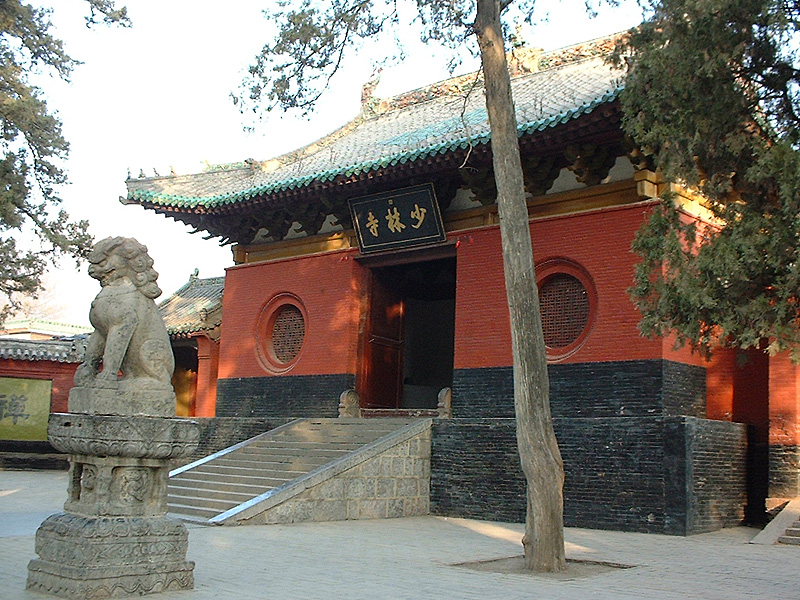 |
|
Replica of the jian (sword) used by Jet Li's character in Hero |
Wuxia
Martial Arts Chivalry
Expressive of Xia, Wu Wei and Ch'i
 |
|
Replica of the jian (sword) used by Jet Li's character in Hero |
Xia refers to the concept of an honorable and generous person who, with considerable martial arts skills, overcomes a great wrong and injustice, protecting the innocent for the general good, hence the notion of "chivalry." It is one who espouses above all else righteousness and honor, is regarded as the "people's champion." In Japan, the samurai bushido tradition shares some aspects of this philosophy. In the European history, it has similarities with the Knight Chivalry and Robin Hood motif.
Wuxia figures play a prominent role throughout Chinese literature and now in contemporary cinema. "A common plot features a young male protagonist in ancient China, who experiences a tragedy (e.g. the loss of a family or an old master) and goes through exceeding hardship and arduous trials to learn. Eventually the protagonist emerges as a supreme martial arts master unequalled in all of China, who then uses his skills chivalrously to mend the ills of the 'Jiang Hu' world."
The Jiang Hu world is a stage on which the plot unfolds, a world corresponding roughly to the American "Wild West," full of wandering knights, thieves, priests, corrupt government officials, and the oppressed innocent.
Elements common to most wuxia stories include: 1. kung fu or marital arts fighting, 2. use of everyday objects such as ink brushes or musical instruments as lethal weapons (note use of calligraphy in Hero), 3. ability to act according to wu wei, swiftly and lightly, one with the Tao, as the protagonist glides over water or across tree tops, or scales a wall, and 4. ability to access and control to ch'i, and direct it for defense or attain stamina.
Significant wuxia films include:
Lady Swordfighter of Jiang-Nan (1925) serial starring Chin Tsi-ang
The Burning of the Red Lotus Temple (1928) — early wuxia film
Red Heroine (1929); revenge-themed 13-film serial starring Fan Xuepeng [1]
Ru Lai Shen Zhang (1964) — starring Cho Tat Wah and Yu So Chow
Dragon Gate Inn (1966) — King Hu wuxia
The Magic Blade (1976) — Shaw Brothers wuxia
Zu - Warriors from the Magic Mountain (1983) — A Tsui Hark Film;
The Legend of Condor Heroes (1983) — serial starring Barbara Yung
A Chinese Ghost Story (1987)
Swordsman II (1992) — the high water mark of 90s wuxia pian
The Bride with White Hair (1993) — A Ronny Yu Film;
Ashes of Time (1994) — A Wong Kar-wai Film;
Crouching Tiger, Hidden Dragon (2000) — A Ang Lee Film; Hollywood wuxia
The Legend of Zu (2001) — A Tsui Hark Film;
Hero (2002) — A Zhang Yimou Film; Movie set at time of Qin Shi Huang with Jet Li as Nameless.
House of Flying Daggers (2004) — A Zhang Yimou Film; A movie starring Takeshi Kaneshiro and Ziyi Zhang
Kung Fu Hustle (2004) — A Stephen Chow Film; A parody of wuxia
The Promise (2005) — A Chen Kaige Film; A movie based on the wuxia story "The Slave of Kunlun"
Seven Swords (2005) — A Tsui Hark Film; Adapted from wuxia author Liang Yusheng's novel
Curse of the Golden Flower (2006) — A Zhang Yimou Film; A movie starring Gong Li and Chow Yun-Fat
The Banquet (2006) — A Feng Xiaogang Film; A movie starring Zhang Ziyi and Daniel Wu
Of note: paradoxically, when Chinese audiences view such movies as Star Wars (the "force"), The Matrix, Lord of the Rings, or Harry Potter, they see a wuxia film.
Examples:
Calligraphy" (25 min., set in Ancient China, it is a time in which rival kingdoms seek to kill the King of Qin, the most powerful of the kingdoms. In this scene, the King of Qin wants to know how his agent, Nameless, killed two powerful assassins, Broken Sword and Flying Snow. How are words more powerful than arrows, and how is the essence of calligraphy and swordsmanship the same? Speculate on the meaning of how color is used in various scenes and in the clothing worn. Illustrative of wuxia genre and application of ch'i. From Hero, a Zhang Yimou 2002 film.)
From the Director's cut (1.5 min.) - A scene most of you haven't seen before. Moon (Ziyi Zhang) asks Nameless to heed Broken Sword's advice, and she tries to kill herself to prove her devotion to her master's teachings.
Moon and Nameless clash (1.5 min.) - a beautiful fight scene, with the overhead shot of their somersaults.
Echo Game" (8 min., set in 859 AD, the once great Tang Dynasty is in decline. In this scene, a police officer "tests" a "blind" dancer, suspecting her to be a rebel. Illustrative of wuxia genre and application of ch'i. From House of Flying Daggers, a Zhang Yimou 2004 film.)
Just for fun
vincent jiao Lotus Lantern (5:16 min., You Tube)
 |
| Shaolin Temple, its monks associated with Kung Fu teaching |